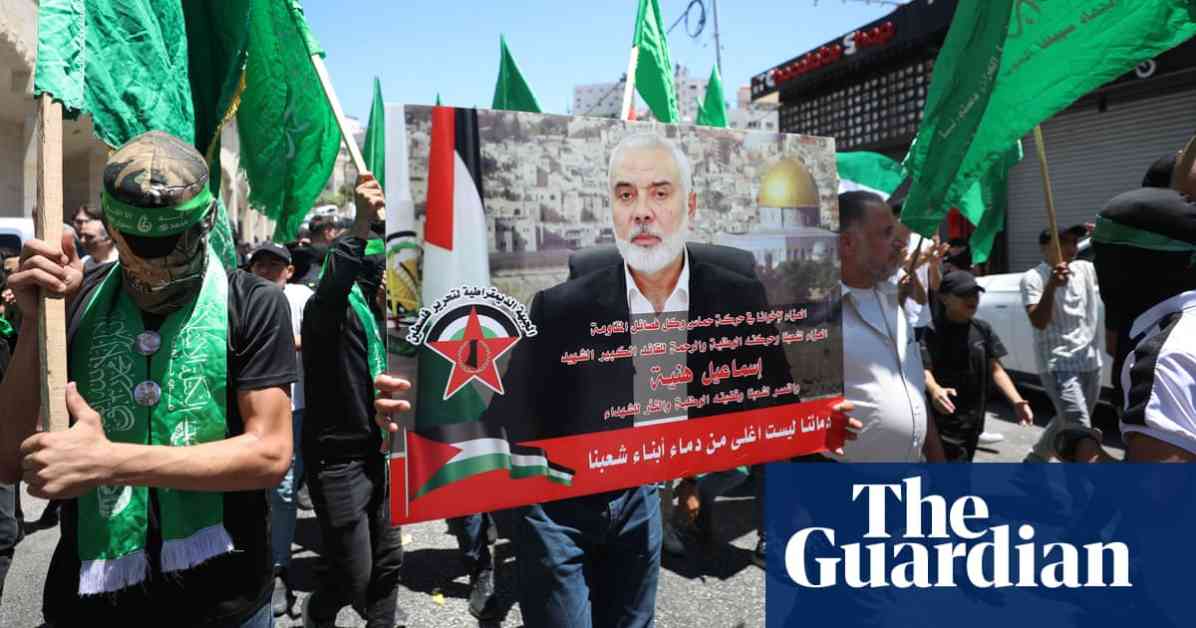Iran has promised to seek revenge after Israeli airstrikes targeted and killed the Hamas political leader Ismail Haniyeh in Tehran and a top Hezbollah commander in Beirut within a span of 12 hours. This has raised tensions in the region and crushed hopes for peace in Gaza.
While Israel did not directly claim responsibility for the attack on Haniyeh, there is little doubt among its enemies, politicians, and analysts about who was behind the assassinations. The senior Hamas official, Khalil al-Hayya, stated that Haniyeh was killed by a missile in a guesthouse in Tehran where he was staying. Iran’s supreme leader, Ayatollah Ali Khamenei, blamed Israel for the attack and vowed revenge.
The timing and location of these attacks, targeting high-profile commanders in densely populated cities, have raised concerns about a potential escalation towards a regional war. Both Hamas and Iran have vowed revenge, but the prospect of an all-out conflict is deemed devastating for all parties involved.
The UN Secretary General, António Guterres, has expressed concerns about the dangerous escalation and urged all parties to work towards de-escalation. The killing of Haniyeh, who played a key role in negotiations for a ceasefire in Gaza, has further complicated peace efforts in the region.
Israeli Prime Minister Benjamin Netanyahu has celebrated the strikes and vowed to continue fighting in Gaza, highlighting the strategic importance of these operations. The US has been leading diplomatic efforts to prevent further escalation and emphasized the need for a ceasefire in Gaza.
Despite the shock and mourning over Haniyeh’s death, Hamas officials believe it will not have an immediate impact on the ground in Gaza. Hamas fighters are led by Yahya Sinwar, who is considered the mastermind behind previous attacks. Israel’s intelligence services have a history of carrying out covert operations, targeting individuals in Iran.
The assassination of Haniyeh and the Hezbollah commander in Beirut has been met with mixed reactions, with Israel viewing it as a partial fulfillment of its promise to hold those responsible for past attacks accountable. While there is a sense of vindication for the security forces, the overall strategic posture in the region remains complex.
Moving forward, it is essential for all parties involved to prioritize de-escalation efforts and work towards a peaceful resolution. The recent attacks have heightened tensions and underscored the need for diplomatic solutions to prevent further violence and instability in the region.












